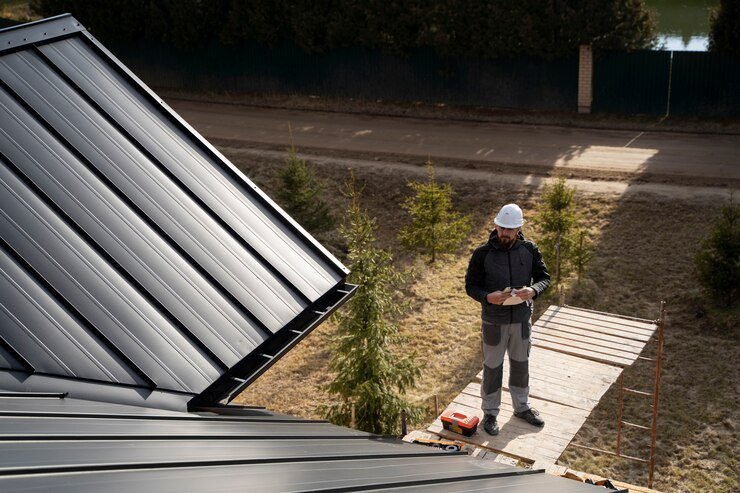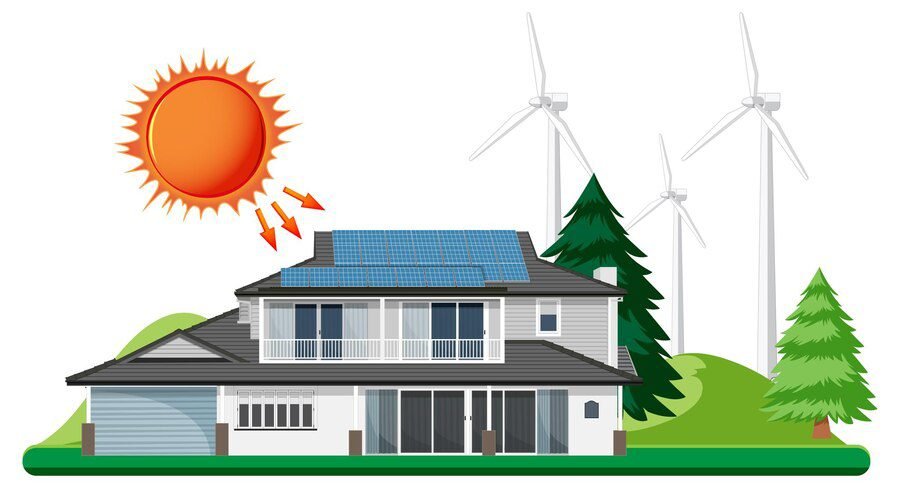Introduction
The roofing industry is evolving rapidly, driven by technological advancements, sustainability demands, and customer expectations. As we approach 2025, embracing these changes is no longer optional—it’s essential for staying competitive. From eco-friendly materials to AI-driven maintenance, the future of roofing holds exciting opportunities for contractors and homeowners alike. Let’s explore the emerging technologies and trends shaping the industry.
1. Eco-Friendly Roofing Solutions
With climate change at the forefront of global concerns, eco-friendly roofing is becoming a priority.
- Green Roofs: Rooftops with vegetation are gaining popularity for their insulation benefits and ability to improve air quality.
- Recycled Materials: Shingles made from recycled materials like plastic and rubber are durable and sustainable.
- Cool Roof Technology: Reflective roofing materials that reduce heat absorption are becoming a standard for energy efficiency.
Key Takeaway: Homeowners are prioritizing roofs that contribute to energy savings and environmental protection, making green solutions a profitable niche.
2. Smart Roofing Systems
The integration of smart technology is transforming roofing maintenance and functionality.
- Sensors for Maintenance: Smart sensors can detect leaks, structural issues, and weather-related damage in real time.
- Automation in Inspections: Drones equipped with cameras and AI can perform detailed roof inspections, saving time and labor costs.
- Solar Integration: Solar shingles and panels are evolving with better efficiency and design, allowing seamless integration into roof aesthetics.
Key Takeaway: Smart roofing technology offers convenience, reduces long-term costs, and appeals to tech-savvy homeowners.
3. Advanced Roofing Materials
The demand for durability and aesthetics is driving innovation in roofing materials.
- Self-Healing Roofs: Materials infused with microcapsules of polymer can repair small cracks automatically.
- Lightweight Metals: Modern metal roofing options are lightweight, rust-resistant, and ideal for areas with extreme weather.
- Synthetic Slate and Tile: These alternatives mimic traditional materials while being more affordable and eco-friendly.
Key Takeaway: Advanced materials not only enhance durability but also cater to aesthetic preferences without compromising functionality.
4. Technology-Driven Customer Experiences
Roofing companies are using technology to improve the customer journey.
- 3D Visualizations: Tools that allow homeowners to visualize different roofing designs and materials before installation are becoming standard.
- Online Quotes and Scheduling: Streamlined digital tools simplify the process of obtaining quotes and scheduling services.
- AI Chatbots: Immediate customer support powered by AI ensures seamless communication.
Key Takeaway: Providing tech-driven experiences builds trust and streamlines decision-making for customers.
5. Roofing Sustainability Initiatives
Sustainability is no longer a trend—it’s a movement shaping the future of construction.
- Net-Zero Buildings: Roofs play a crucial role in achieving net-zero energy consumption through efficient insulation and solar power.
- Recyclable Roofing Materials: Manufacturers are designing roofs with end-of-life recyclability in mind.
- Government Incentives: Many regions offer incentives for installing energy-efficient roofing systems, making sustainability more accessible.
Key Takeaway: Sustainability-focused roofing solutions will become the norm as governments and homeowners push for eco-conscious choices.
6. The Rise of Modular Roofing Systems
Modular construction is revolutionizing the roofing industry with pre-assembled panels that reduce installation time.
- Faster Installation: Modular roofs cut down on labor costs and time on-site.
- Customizable Designs: Panels can be tailored to match a building’s architecture.
- Reduced Waste: Prefabrication minimizes material waste, aligning with sustainability goals.
Key Takeaway: Modular roofing is an excellent option for projects requiring efficiency and customization.

FAQs About the Future of Roofing
A: Smart roofing systems offer real-time monitoring, automated inspections, and reduced maintenance costs, improving long-term performance.
A: Contractors can use eco-friendly materials, install solar-integrated roofs, and educate customers on energy-efficient options.
A: Yes, solar roofing reduces energy costs, increases property value, and qualifies for government incentives in many areas.
Connect with Ranu Patel WebExpert
The roofing industry is undergoing a revolution, and staying ahead means embracing these emerging technologies and trends. At Ranu Patel WebExpert, we specialize in helping roofing businesses leverage digital tools and marketing strategies to thrive in a competitive market. Let’s build your future-proof brand together.
Conclusion
The future of roofing is bright, with innovative technologies, materials, and customer-centric approaches shaping the industry. By adopting these trends, roofing companies can deliver superior solutions and stay ahead of the competition. Whether you’re a contractor or homeowner, now is the time to embrace the future of roofing and contribute to a more sustainable and efficient industry.








